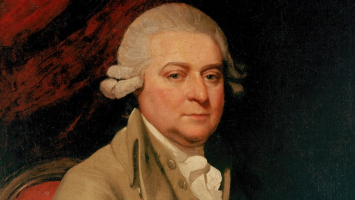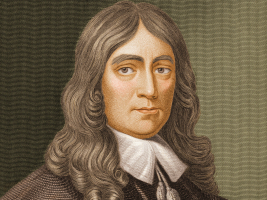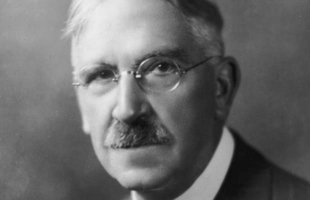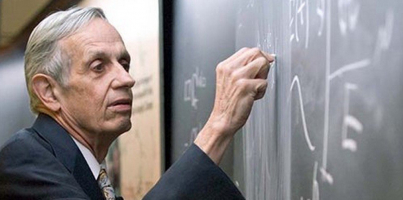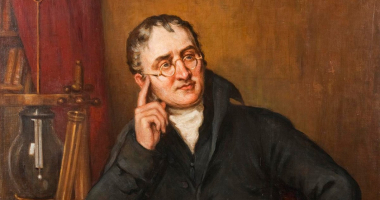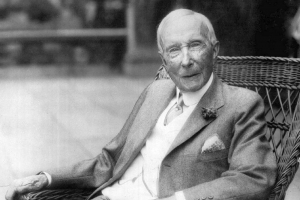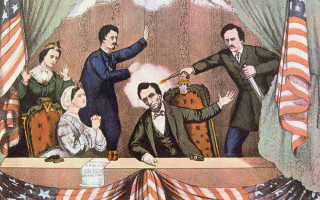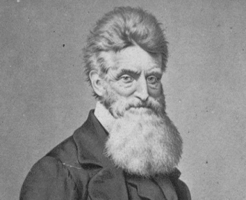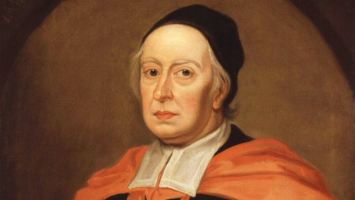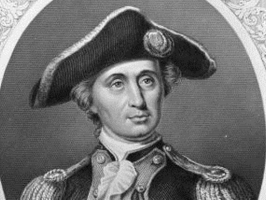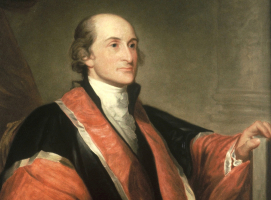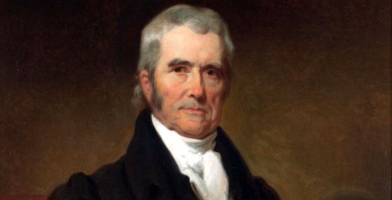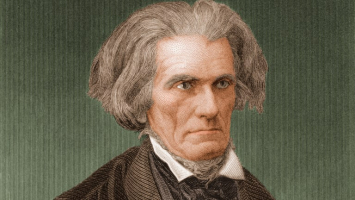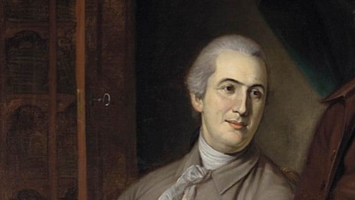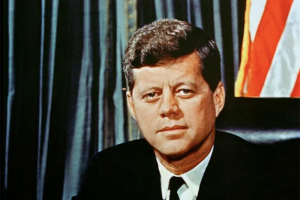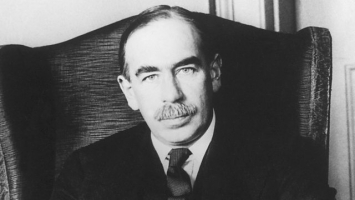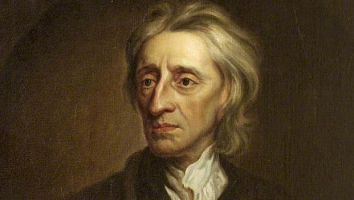Top 7 Interesting Facts about John Quincy Adams
John Quincy Adams, who was born on July 11, 1767, was one of the most intelligent and well-educated presidents the United States has ever had. As a young lad, ... read more...he and his father took numerous trips around Europe. Throughout his lengthy career, he vehemently condemned slavery. A harsh presidential reelection campaign was likewise lost by him, and he then represented Massachusetts in Congress. Here are a few interesting facts about John Quincy Adams you may not have gleaned from the history books.
-
When John was still a little child, his father started teaching him to read. John went to several different schools. One of the interesting facts about John Quincy Adams is that his favorite subject was math. John struggled to be patient in the classroom. John's father envisioned him earning a Harvard degree and entering the ministry. John agreed to pay more attention to their studies if his father would have Joseph Marsh, who managed a more difficult school, teach him. John entered Harvard in 1751, one year older than the typical student at the time, when his academic performance improved.
Adams earned a Bachelor of Arts degree in 1755. Adams was the 15th out of 24 graduates. After graduating, Adams intended to dedicate himself to the legal profession. Adams' first position, nevertheless, was as a schoolteacher in Worcester, Massachusetts.
The young Adams attended school in Paris, Amsterdam, Leyden, and The Hague before graduating from Harvard College in 1787 with a bachelor's degree. In actuality, Adams House, one of Harvard's 12 student residence halls, is named for both Adams and his well-known father, a Harvard alumnus.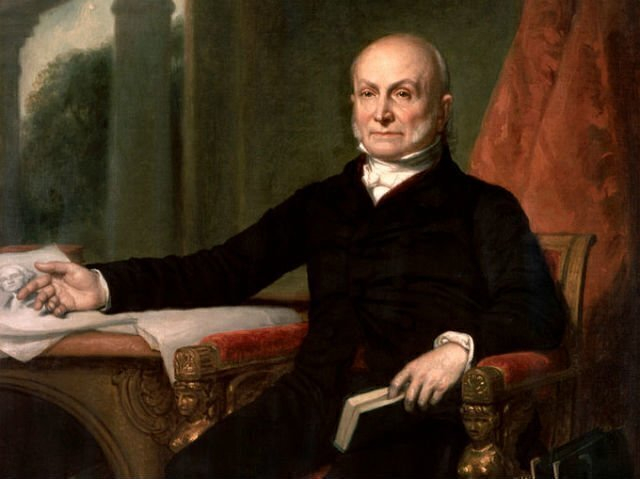
Photo: constitutioncenter.org 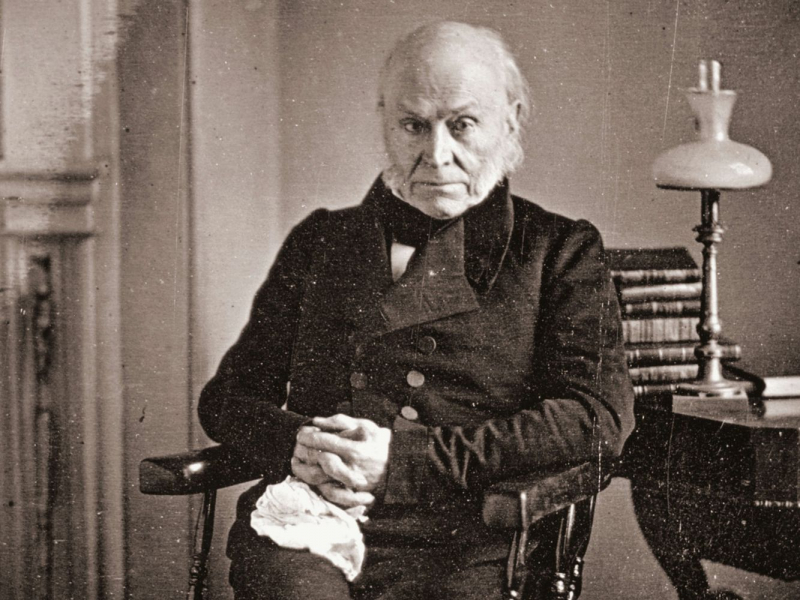
Photo: www.thoughtco.com -
Early birds have an advantage when it comes to personal fitness. Morning exercise can reduce appetite, stop weight gain, and even improve your ability to sleep at night, according to studies. John Quincy Adams was the only person who truly appreciated the benefits of morning exercise. Adams would get up at five, take a cold bath, and read a few chapters from his German-language Bible before serving as America's ambassador to Russia. Breakfast was followed by a 6-mile walk.
The politician loved establishing new objectives, just like any good fitness expert would. President James Monroe appointed Adams secretary of state in 1817. Adams preferred skinny dipping to walk while serving in the Cabinet; his go-to spot was the Potomac River.
He set a personal record in 1822 by being in the Potomac for 50 minutes without reaching the bottom. He continued doing it for 80 minutes the very next year. But future First Lady Louisa Adams made sure that Adams wasn't permitted to surpass himself after that accomplishment. She persuaded her middle-aged spouse to reduce his swimming time to hour-long sessions with the advice of a doctor. Unfazed, the Secretary of State made the most of his brief exercises by diving in fully dressed, which increased the amount of resistance.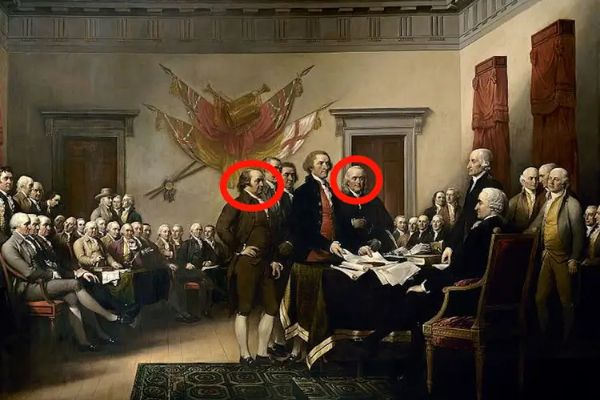
Photo: www.businessinsider.com 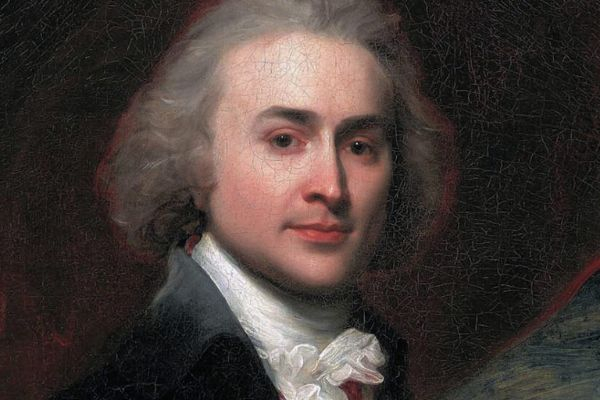
Photo: medium.com -
Adams did receive a master's degree from Harvard in 1790, but his legal education was actually finished under the tutelage of the legendary Theophilus Parsons, who later left Boston's private practice to become Chief Justice of the Massachusetts Supreme Court. In doing so, he joins the illustrious list of historical figures who were lawyers, which also includes lawyers like Abraham Lincoln and Alexander Hamilton who also did not go to law school.
John Quincy Adams had a long and illustrious political career. John Quincy Adams, the son of Abigail and John Adams, was born in 1767, graduated from law school in 1787, and quickly began working as a diplomat in politics. In 1803, he was elected as the Massachusetts state senator for the Federalist party. Adams rapidly made a name for himself as a free-thinking individual who was willing to reject party loyalty. He defeated Andrew Jackson in a contentious election to become the sixth president of the United States in 1824. John Quincy Adams served in the House of Representatives for nearly 17 years after leaving office, where he was known as "Old Man Eloquent." On February 23, 1848, Adams experienced a stroke and passed away in the US Capitol. His extraordinary journal offers an insightful portrait of early American politics.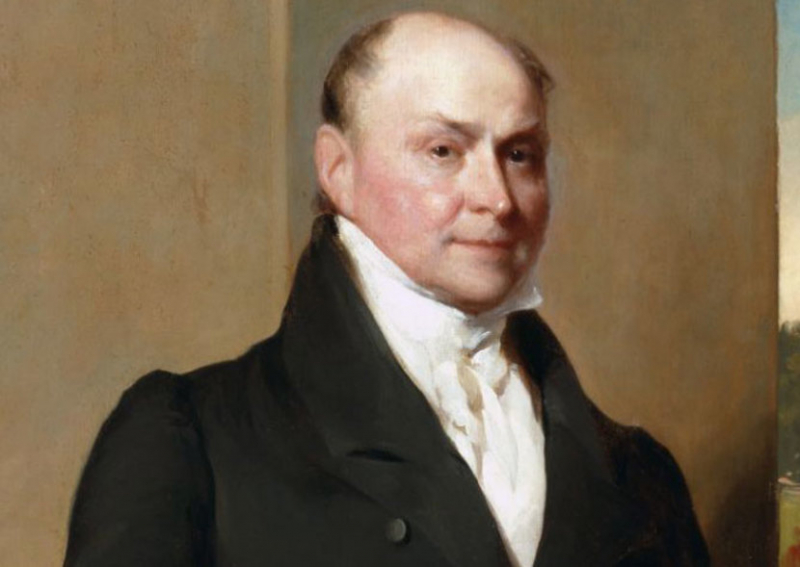
Photo: www.loa.org Video: Biography -
Adams started a career in international diplomacy in 1794, first serving as the United States' ambassador to the Netherlands. Later, under President James Monroe, he served as ambassador to Prussia, Russia, and Great Britain before being appointed as the country's eighth Secretary of State. He developed the Monroe Doctrine in that position, which said that any attempt by a European power to colonize or meddle in the Americas would be seen as a direct danger to the security of the United States and warrant action.
The Monroe Doctrine has its roots in the early 1820s, when numerous European nations sought to regain their dominance in the Americas. In North America, Russia had made an effort to increase its influence in the region of Alaska, while the U.S. administration was concerned about a rebirth of Spanish colonialism in Central and South America. Adams feared that the United States would play a subordinate position in an Anglo-American alliance since Britain was also aggressively seeking a significant role in the political and economic future of the Americas.
Midway through the 19th century, the United States invoked the Monroe Doctrine to justify its expanding imperialist role in the Americas. However, it wasn't until the Spanish-American War in 1898 that the United States actually declared war on a European nation for interfering in the American hemisphere. The Monroe Doctrine's isolationist stance was a cornerstone of American foreign policy in the 19th century as well. It took the two world wars of the 20th century to compel a reluctant America to embrace its new position as a significant world power.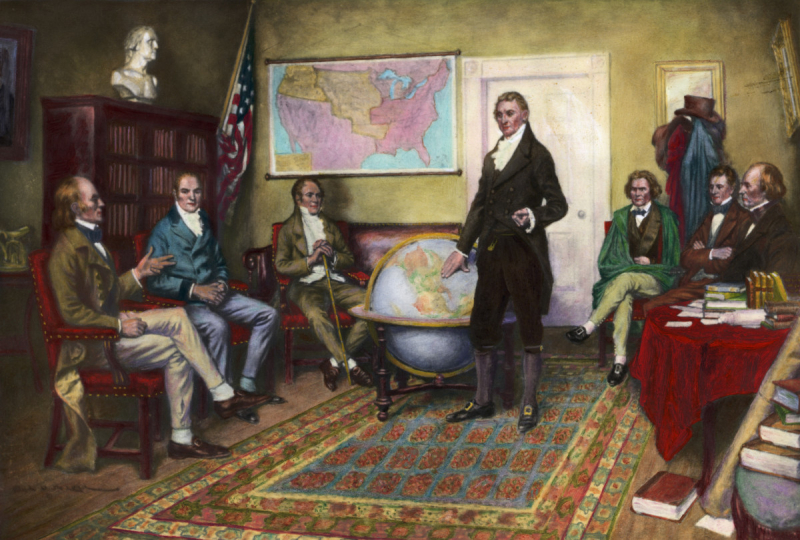
Photo: history.com Video: Greatest AudioBooks -
An interesting fact about John Quincy Adams is that he was the first president to be interviewed by a woman.
Travel author and publisher Anne Royall have a straightforward recipe for achievement. She treated subscribers kindly while charging $5 for subscriptions, but she was extremely insulting to anyone who didn't pay. Thankfully, John Quincy Adams gave her $5 when he first met her. In addition, he advised her to speak with his wife and pledged to secure her a pension. She cornered him while he was skinny swimming in the Potomac, something he did every day, according to an urban legend. He claims that she asked him about the Bank of the United States and sound money (he supported it). Later, he referred to her as "the virago errant in magical armor."
But Anne Newport Royall had to take a less serious step when she attempted to meet with John Quincy Adams and become the first newspaper reporter to ever interview a sitting president.
Due to her upbringing in a log cabin in western Pennsylvania, Royall developed into a tough competitor with a passion for justice. She sold up her husband Major William Royall's land after his death in 1813 and used the proceeds to go on a trip.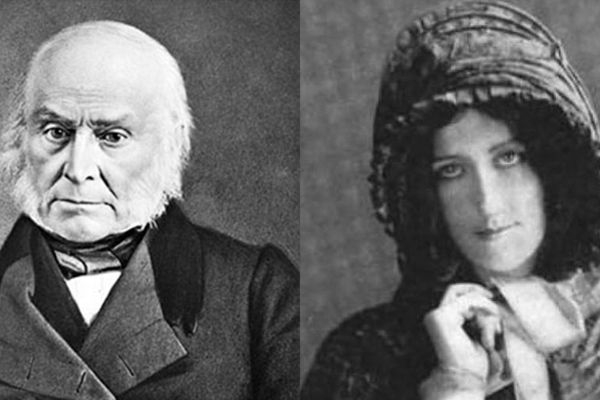
Photo: observer.com 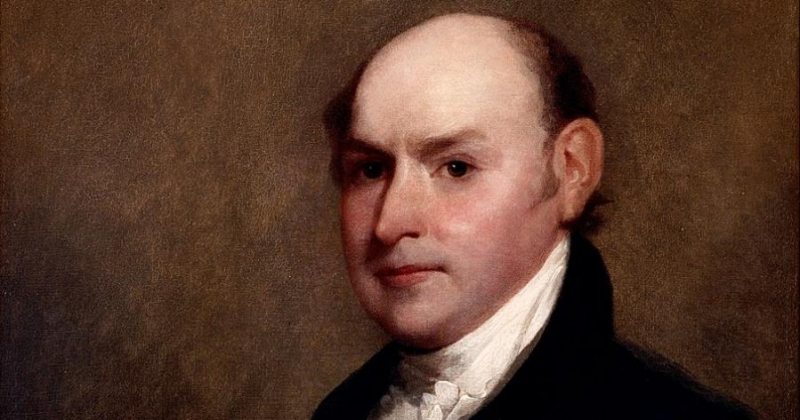
Photo: boundarystones.weta.org -
John Quincy Adams had to study dance in Europe as a young boy, possibly because his father was such a terrible dancer. However, he declared that dancing was "one of the most pure and sensible amusements that were ever conceived" and that he enjoyed it. From his undergraduate years until his 80th birthday, he went to dances. He considered making fun of bad dancers to be petty, which was a sign of his nature. This is one of the interesting facts about John Quincy Adams.
John Quincy Adams used dancing to relieve boredom from his laborious studying and to practice his pride and prejudice. They made Haverhill livable for him. There was just one issue. The dominating Baptist pastor in the community wanted dancing outlawed because he was "violently opposed to it."
The Reverend Hezekiah Smith was a formidable figure. He had the distinction of having preached in every colony. He was a ferocious reform Baptist preacher and former chaplain in the Revolutionary War. In the same sentence, at times, he was described as being both elegant and menacing. "A son of thunder to the wicked, and a son of solace to the saints," said one individual who witnessed him preach. Someone else remarked, "His preaching made my very soul quake."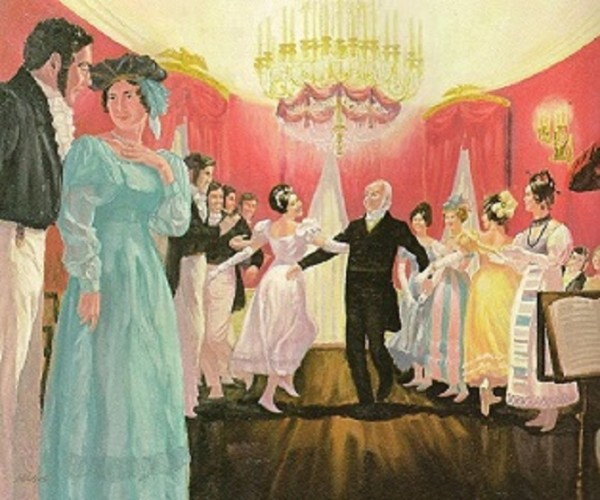
Photo: potus-geeks.livejournal.com Video: Brendan Noble -
One of the cruelest, dirtiest presidential campaigns in American history took place in 1828. Adams' wealthy upbringing made him appear "elitist," and Jackson supporters disseminated a rumor that Adams had given the Russian czar a young American woman in exchange for sexual favors while serving as ambassador. A Cincinnati newspaper questioned whether a convicted adulteress and her paramour spouse should be appointed to the highest positions in this free and Christian country after learning about Rachel Jackson's prior marriage due to Henry Clay's involvement in the campaign against her. Adams was humiliated.
The election signaled the emergence of Jacksonian democracy and the changeover to the second party system from the first. Many historians think that the election, by removing significant barriers to voting and establishing a stable two-party system, signaled the birth of modern American politics. Adams was the second president to lose the election after his father John Adams, and Jackson became the first president whose home state was neither Massachusetts nor Virginia. Adams was the first of three elected presidents—the other two were Benjamin Harrison in the late 19th century and Donald Trump in the early 21st century—to lose the popular vote in back-to-back elections. After winning the popular and electoral votes in the 1836 US presidential election, Martin Van Buren also lost the popular vote twice, in 1840 and 1848.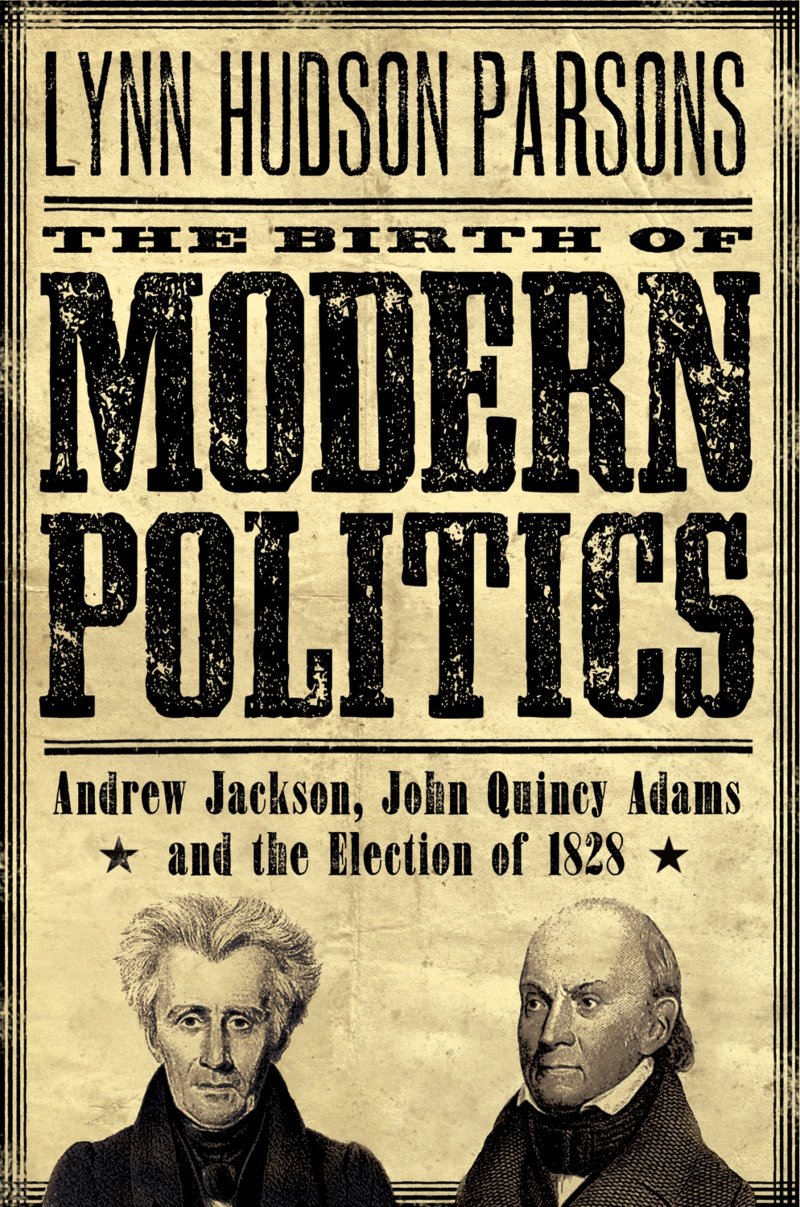
Photo: amazon.com 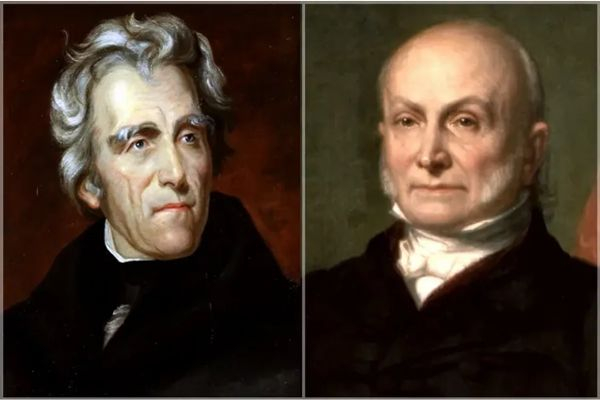
Photo: salon.com









